The 4 Types of Collies—and the Homes Where They Do Best
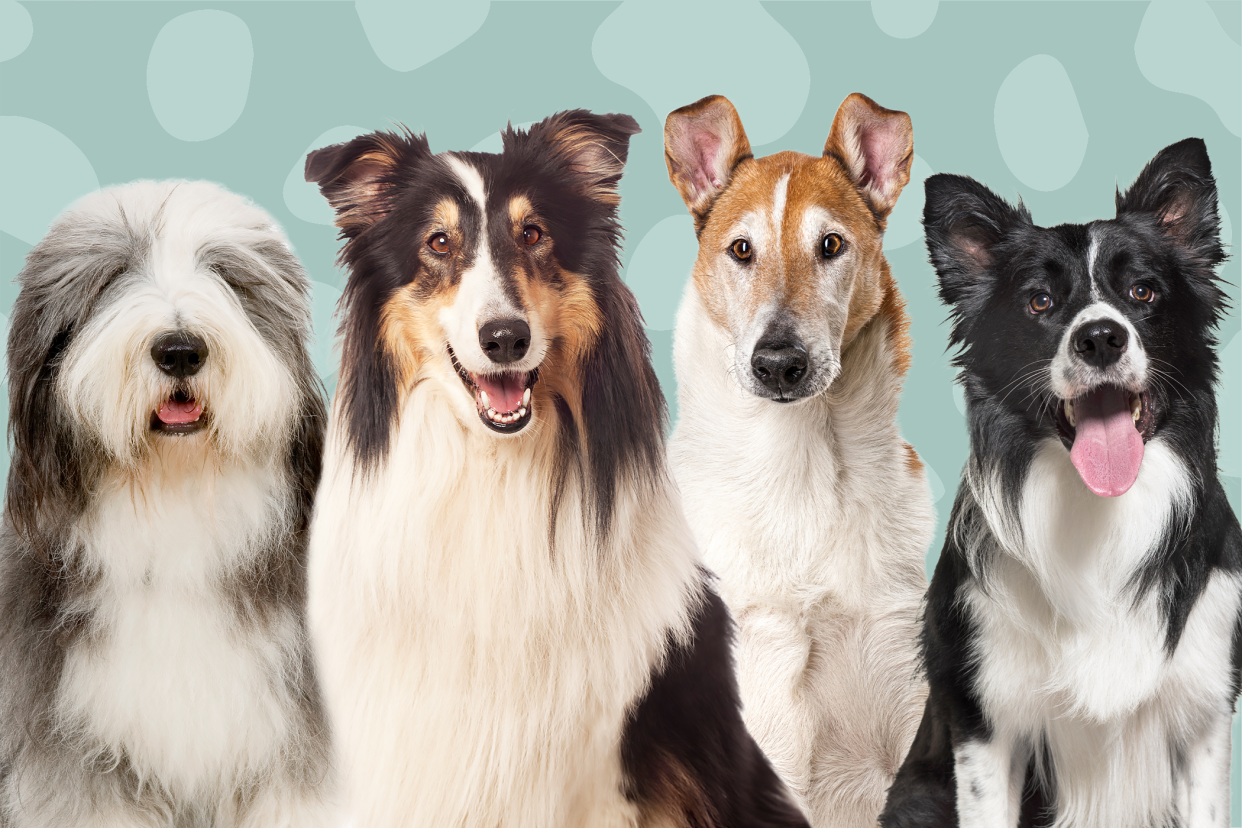
alvarez / PavelHlystov / GlobalP / Getty
Are you considering adding a collie to your home? You might have visions of the canine TV star Lassie—a rough-coated collie—nurturing your brood. But there are three types of collies (and a bonus variety) to choose from. And while they're all intelligent and loyal, like good ol' Lassie, there are differences between the breeds, too.
We talked with Brandi Hunter Munden, spokesperson for the American Kennel Club, to get the lowdown on the different types of collies. Read on to learn which breed might be the best fit for you and your family.
What Are Collie Breeds?
"The word 'collie' is a Scottish dialect word used to describe sheepdogs," Munden says. That's why some herding breeds might get lumped under the collie category when they're not considered a true collie breed.
Collie breeds were originally farm dogs and continue to have a strong desire to watch over their flock, making them excellent family dogs. They vary in activity level, but none of them are considered couch potatoes. After all, these dogs were originally bred to work.
RELATED: 10 Cattle Dog Breeds That Can Round Up the Herd in a Flash
Rough Collie
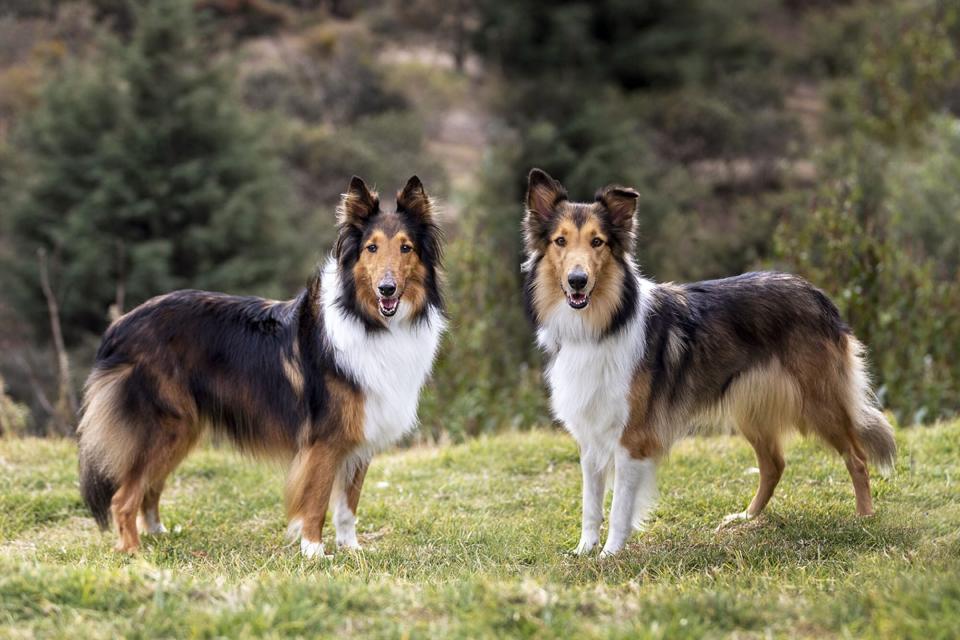
UlrikeStein / Getty
When people think of collies, it's the rough (long-haired) collies who come to mind. With their long, thin noses and almond-shaped eyes, these elegant canines became a favorite in Victorian England and in the U.S. during the 20th century. They earned a loving reputation for their devotion to children. According to the Collie Club of America, collies are playful with kids and protective, too, without being overly aggressive.
Collies are easy to train (and that includes potty training!) and happiest when they're around family. They don't do well in an empty home for hours at a time. Daily physical activity is essential but it doesn't have to be as intense as other collie types—these pups are happy to hang on the couch with you, too.
Exposure to other people and environments is essential for this collie breed, Munden says. "Collies can be very timid, which can create bad habits. So you have to socialize them as soon as possible."
Smooth Collie
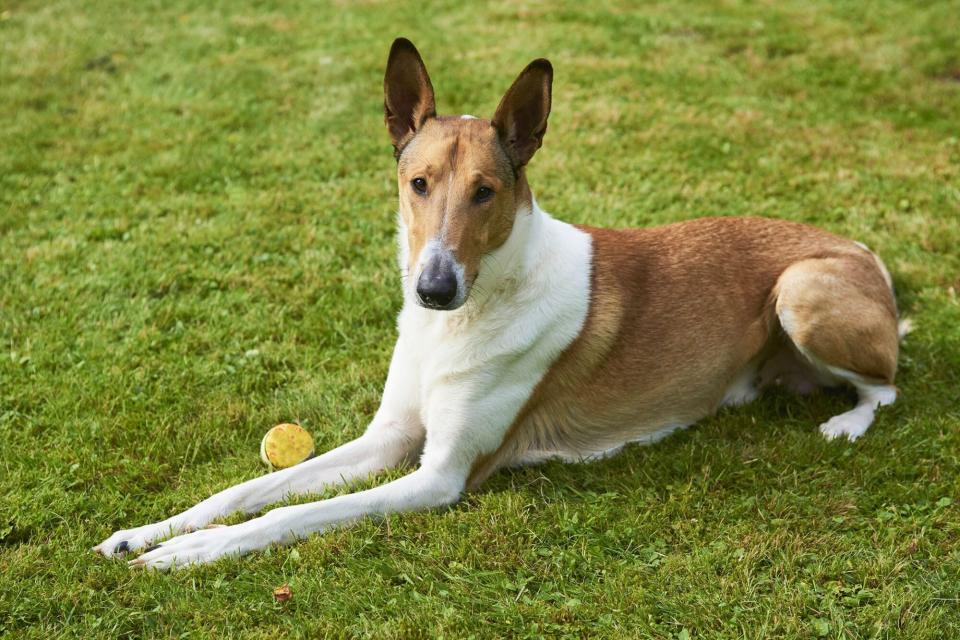
PetrBonek / Getty
While not an entirely different breed from the rough collie, smooth, aka short-haired, collies are just as described—collies with short hair. These collies don't have those flowing locks because they were bred to help take animals to market and didn't need the durable, extra-long fur to protect them from the weather in the mountains. As you can imagine, the short hair is much easier to care for, although they still shed seasonally.
Bearded Collie
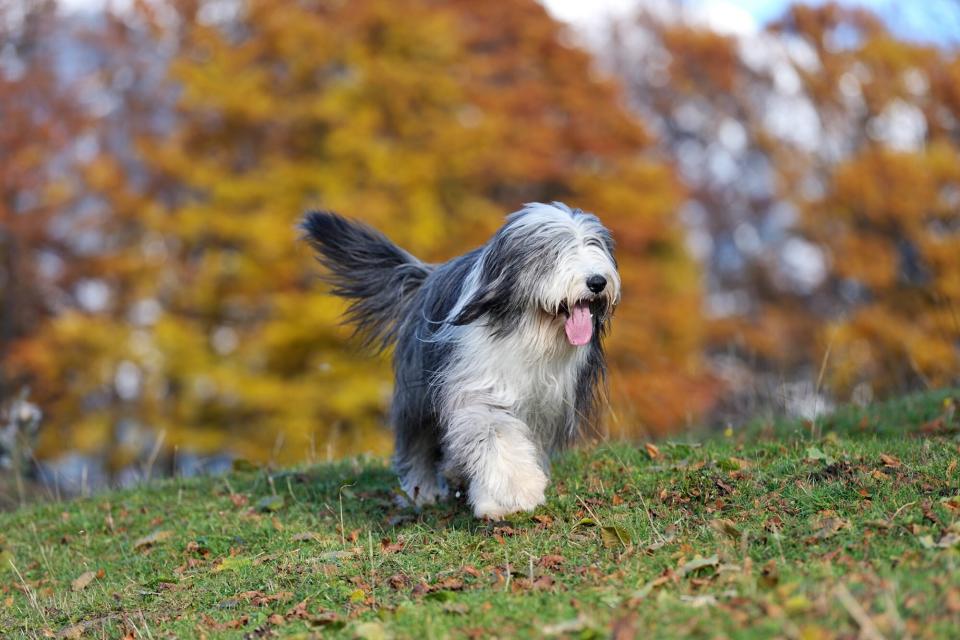
s5iztok / Getty A favorite Scottish farmhand, bearded collies make great family dogs, too. They love to play until they pant, and then they'll be down for snuggles on the couch.
Bearded collies (beardies) may best epitomize their Scottish ancestry. The breed has a happy-go-lucky demeanor coupled with smarts, stamina, and the will to do difficult things, which was moving cattle historically. Popular during the Victorian era, beardies aren't as common these days. But that's a shame because, Munden says. "They have a bouncy, care-free attitude, are very affectionate, and get along well with other pets."
On the downside: Taking care of a beardie's shaggy mane is a commitment. It needs daily brushing to keep it free of mats and dirt. Another must? A long workout every day. Beardies have physical and mental energy to burn. If they miss too many workouts, beardies might start getting into trouble around the house. They make excellent sidekicks for active, outdoorsy people.
Beardies are also known for being independent. They were bred to work on the farm with little to no management. But because they're not used to taking orders, bring patience and a lot of positive reinforcement (treats and praise) to your training sessions.
Border Collie
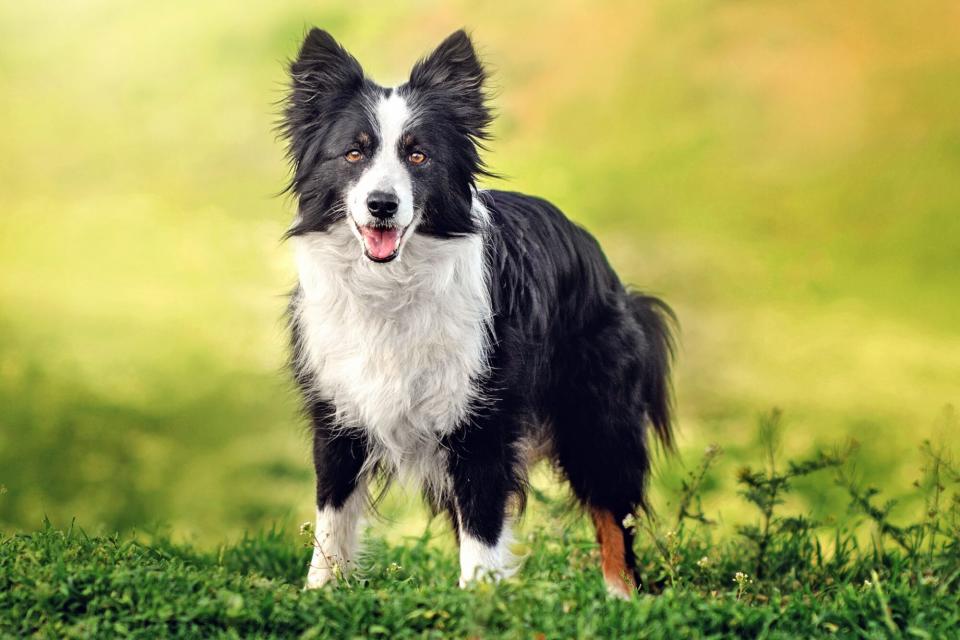
Kate / Adobe Stock Border collies need at least an hour of heart-pounding exercise a day—they'd be perfect as your new running buddy!
Often called the smartest dog in the world, border collies are highly intelligent and hyper. These gifted canines dominate in canine sports like agility, where they zip around, and in obedience and trick dog competitions.
"Border collies need more than just a fenced-in yard to get their daily exercise. They're strong-willed and easily bored," Munden says. It's why canine sports are such a great outlet for them and an area where they're often the reigning champions.
"Despite their athleticism, they love to settle down and cuddle with their families at the end of an active day," Munden says.
Border collies do best in homes where they get plenty of personal attention and are included in every activity, preferably on a farm where they can put their herding instincts to work. This doggo doesn't want to be left behind—not because border collies are clingy but because they always need something to do.
RELATED: These 10 Border Collie Mixes Are the Perfect Blend of Beauty and Brains

